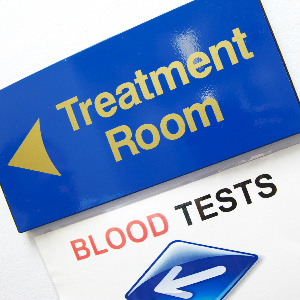GPs told to cut out unnecessary treatments by medical royal colleges

The Academy of Medical Royal Colleges has launched its ‘Choosing Wisely’ initiative, which aims to cut down on unnecessary treatments with recommendations for clinicians to follow.
The scheme suggests GPs should not routinely check cholesterol levels for patients taking statins at the recommended dose without pre-existing problems and should only consider ‘blood pressure treatment with drugs to prevent heart disease or stroke when the BP is consistently above 140-159/90-99 in people with additional risk factors.’
Each college has listed recommendations to reduce unnecessary treatments.
Other recommendations state that PSA-based screening ‘does not lead to a longer life’ unless the patient is at risk of prostate cancer, ‘and that imaging is not required for back pain if it is uncomplicated, with no ‘red flags or radicolupathy.
Other recommendations include:
- Ovarian cysts under 5cm in diameter in women who have not undergone menopause do not need to followed up, and don’t need a blood test to determine CA-125 levels;
- Women with copper IUD or IUS only need professional advice when they cannot feel the threads, and they should be taught how to feel the threads;
- Aspirin is not recommended to reduce blood clots in pregnant women;
- GPs can tell parents that helmet therapy is not effective in the treatment of positional plagiocephaly;
- A vaginal swab is not normally necessary for a woman with abnormal vaginal discharge which is probably caused by thrush or bacterial vaginosis if she is at low risk of STI.
As well as listing treatments to avoid, the scheme also suggests questions for patients to ask their clinician about their treatment:
- Do I really need this test, treatment or procedure?
- What are the risks or downsides?
- What are the possible side effects?
- Are there simpler, safer options?
- What will happen if I do nothing?
Professor Dame Sue Bailey, chair of the ARMC, said: ‘We all have a duty to look after resources in healthcare, especially when the NHS is under so much pressure, but that’s not the main motivation for this initiative.
‘What’s much more important is that both doctors and patients really question whether the particular treatment is really necessary. Medicine or surgical interventions don’t need to be the only solution offered by a doctor and more certainly doesn’t always mean better.’
Professor Maureen Baker, RCGP chair, said: ‘At a time when patients in some areas of the country are having to wait for nearly a month to see their GP – due to rocketing demand and not enough GPs to keep pace – this report is a dose of common sense.
‘The guidance shows there are many minor ailments and conditions that can be treated quickly and effectively without needing to see a GP, meaning that family doctors can dedicate their valuable time to those patients who really need our expert skills.
‘As well as demonstrating to patients why going to the GP isn’t always the best course of action, it should also reduce the pressure on GPs to prescribe medications such as antibiotics which might not be needed.’
This follows the introduction of the Choosing Wisely scheme in Wales which focused on the recommendations (also in the UK-wide scheme) that GPs should avoid X-rays in patients with lower back pain and avoid prescribing medicines to frail people in their last year of life.
Katherine Murphy, chief executive of The Patients Association, said: ‘This list acts as an important reminder that reviewing current practice in medicine is important, not just because it can help us improve on good and bad experiences, but also because sometimes habits form with little justification for them.’
She added: ‘The Patients Association question why a list of unnecessary treatments have surfaced so late in the day in light of well-documented and huge financial pressures on the NHS. Surely NHS leaders and healthcare professionals should have considered cost saving measures like this early on? If this advice is so obvious to health care professionals, why was more not done before this point to rectify the situation? It is important that patients receive the best possible care and so every penny counts.’
Recommendations from the RCGP:
- When patients are particularly frail or in their last year of life, unless there is a clear preference otherwise by the patient or advocate, discuss decreasing the number of medicines to only those used for control of symptoms.
- Be alert to the possibility of dementia when an individual patient is seen rather than routinely screening whole groups of patients unless recommended to do so by the UKNSC.
- If drug treatment is being considered to prevent heart disease, stroke or osteoporosis in previously well people ensure that this decision is shared with the individual concerned.
- Only consider blood pressure treatment with drugs to prevent heart disease or stroke when the BP is consistently above 140-159/90-99 in people with additional risk factors.
- If there is concern that a woman has polycystic ovaries, take a blood test to look for a typical hormone pattern before considering further imaging.
- If an individual takes a statin at the recommended dose, there is no need to routinely check cholesterol levels unless there is evidence of pre-existing problems such as a heart attack, stroke or family tendency to have problems with lipids.
Source: Choosing Wisely



 Oviva’s fully remote Tier 3 Weight Management programme
Oviva’s fully remote Tier 3 Weight Management programme





